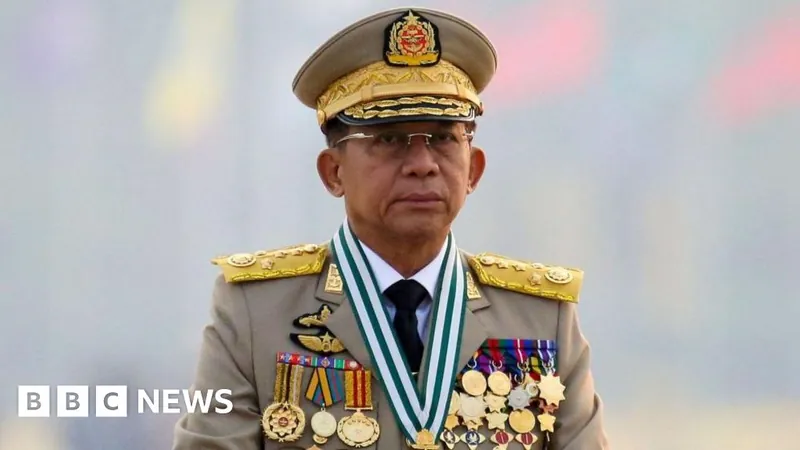
Tragedy Strikes Myanmar: Over 3,000 Dead in Devastating Earthquake as Leader Attends Summit in Thailand
2025-04-03
Author: Jia
As Myanmar grapples with the aftermath of a catastrophic earthquake, the junta leader Min Aung Hlaing has traveled to Bangkok for a critical regional summit. The quake, which struck central Myanmar last Friday, has claimed the lives of 3,085 people and left thousands more injured or missing, according to the latest reports from the military government. With infrastructure in shambles, many areas remain inaccessible, meaning the true scale of the disaster may still be unfolding.
Min Aung Hlaing’s appearance at the summit of the seven countries bordering the Bay of Bengal comes amid rising international concern over the humanitarian crisis in Myanmar. This situation is unprecedented, as leaders like Hlaing, who are under heavy sanctions globally, usually do not attend such gatherings. The summit will also include leaders from Bangladesh, Bhutan, India, Nepal, and Sri Lanka, and discussions around a joint statement addressing the disaster have been proposed by host Thailand.
In addition to the tragic death toll, reports confirm that around 4,715 people suffered injuries, and many are currently unaccounted for. The devastation has prompted countries around the world to dispatch aid and rescue teams, yet relief efforts are hampered by ongoing civil unrest and poor infrastructure. A temporary ceasefire was announced by the junta on Wednesday to facilitate aid efforts, although previous military actions, including airstrikes in affected regions and a disturbing incident where troops fired on a Red Cross convoy, complicate the situation.
Tensions on the ground are exacerbated by a civil war that has consumed Myanmar since the military coup in 2021, leading to the rise of armed resistance groups. This conflict has left the economy in ruins and plunged the nation into a severe humanitarian crisis, worsened further by the earthquake.
As Min Aung Hlaing meets with Thai Prime Minister Paetongtarn Shinawatra on the sidelines, observers are watching closely to see how regional leaders will address the mounting catastrophe in Myanmar. The United Nations has called for swift action and increased international aid as the monsoon season looms closer, stressing that time is of the essence in delivering relief to the millions caught in this escalating disaster.
This earthquake is not just a natural disaster—it's a wake-up call for a nation in need of solidarity and support from the global community. Can the international response rise to meet this urgent challenge?


 Brasil (PT)
Brasil (PT)
 Canada (EN)
Canada (EN)
 Chile (ES)
Chile (ES)
 Česko (CS)
Česko (CS)
 대한민국 (KO)
대한민국 (KO)
 España (ES)
España (ES)
 France (FR)
France (FR)
 Hong Kong (EN)
Hong Kong (EN)
 Italia (IT)
Italia (IT)
 日本 (JA)
日本 (JA)
 Magyarország (HU)
Magyarország (HU)
 Norge (NO)
Norge (NO)
 Polska (PL)
Polska (PL)
 Schweiz (DE)
Schweiz (DE)
 Singapore (EN)
Singapore (EN)
 Sverige (SV)
Sverige (SV)
 Suomi (FI)
Suomi (FI)
 Türkiye (TR)
Türkiye (TR)
 الإمارات العربية المتحدة (AR)
الإمارات العربية المتحدة (AR)